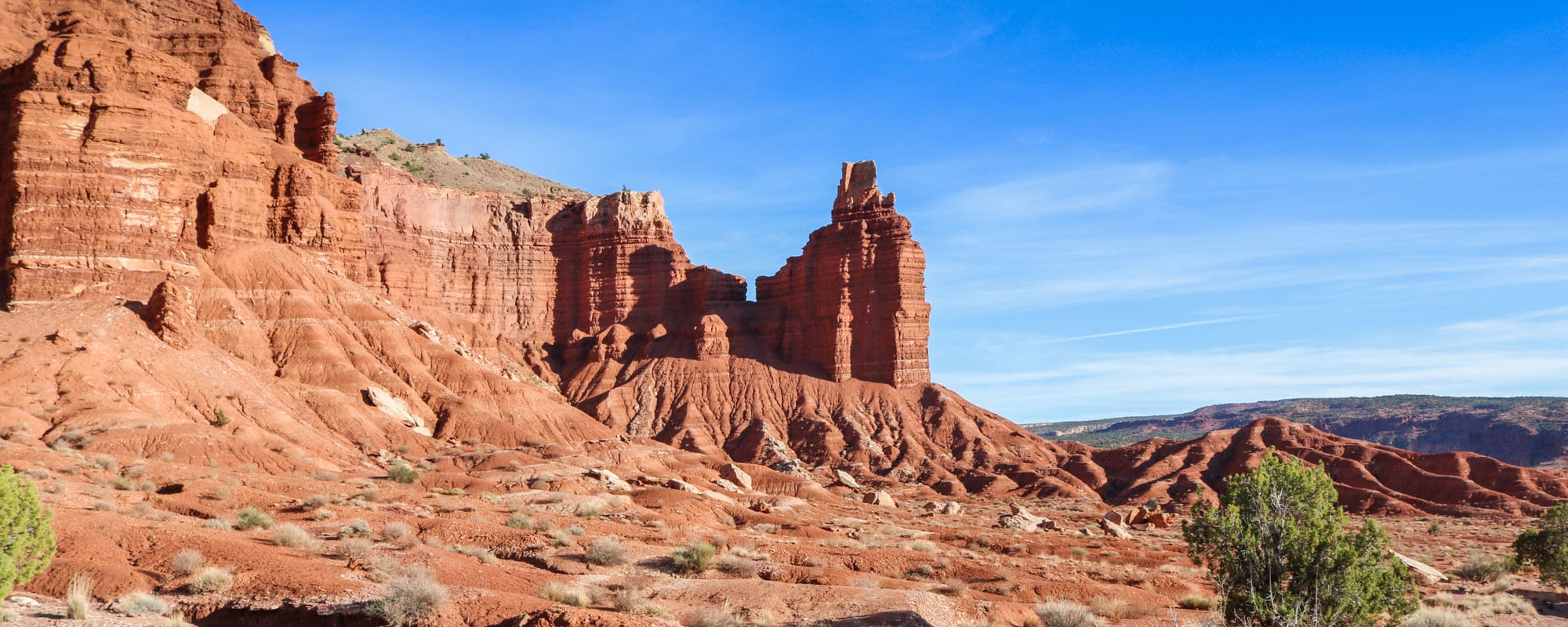The middle of Utah’s five national parks, Capitol Reef National Park features Native American and Mormon sites, spectacular rock formations and a 100-mile geological “wrinkle” known as the Waterpocket Fold.
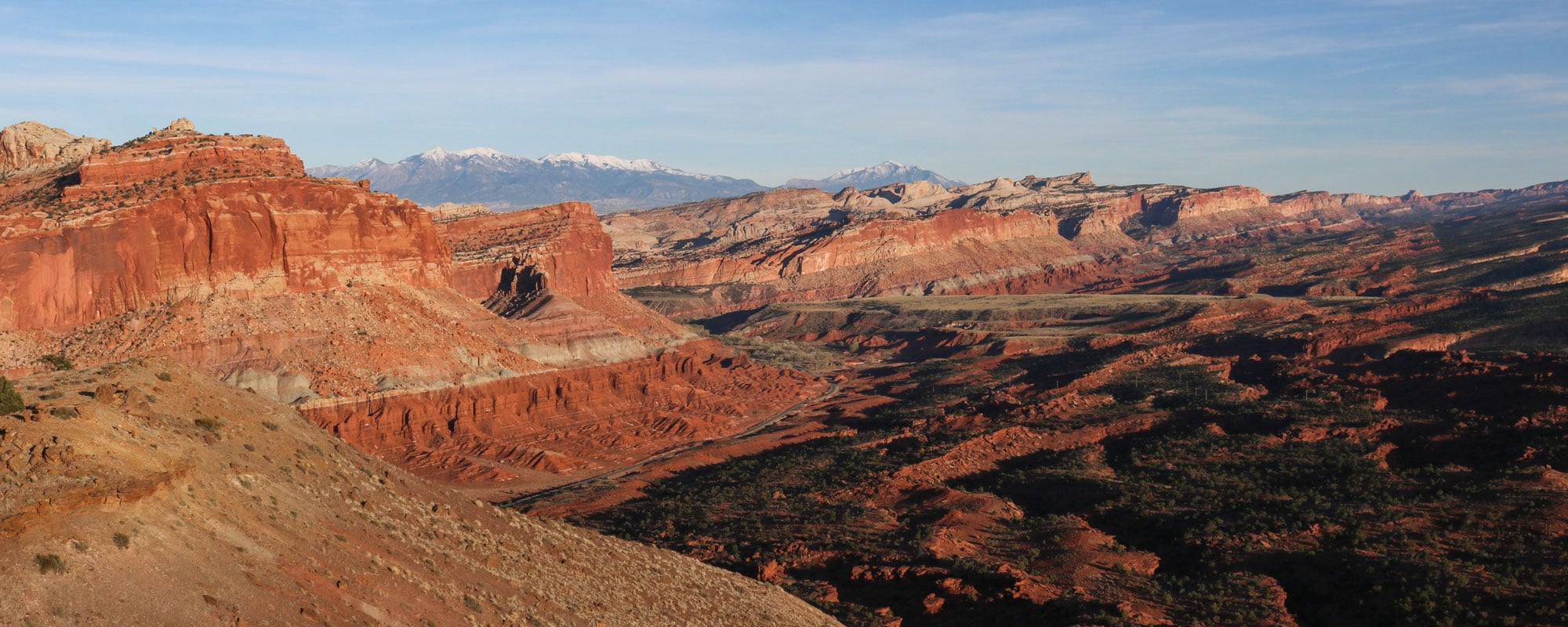
The extraordinary rock formations of Capitol Reef are the result of millions of years of geological activity paired with erosion by water and ice.
Slot canyons, rock arches and bridges, tall pillars, domes and cliffs sweep across this vast desert landscape, its colors ever-changing as the sun arches its way across the sky.
Capitol Reef National Park is at its prime early in the morning and late in the evening, when the sun’s low angle casts long shadows across the desert floor. This is a hot and dry place, best explored just after sunrise or just before sunset.
Protecting the so-called Waterpocket Fold, a 100-mile monocline and the main geological feature of the park, Capitol Reef is a huge park.
There’s one main tourist area, though, which makes visiting the park super-easy. Route 24 runs through the heart of the park—it’s the park’s only main road, really—and passes by Fruita, a 19th-century Mormon village that’s now home to a campground, fruit orchards, the visitor center, picnic areas and historic barns and homesteads.
I recommend starting your visit there. Pop into the visitor center, watch the short movie, and get a park map and newspaper.
Then, head out for some serious desert exploration. There are several great hikes in Capitol Reef National Park, more than enough to fill a day or two.
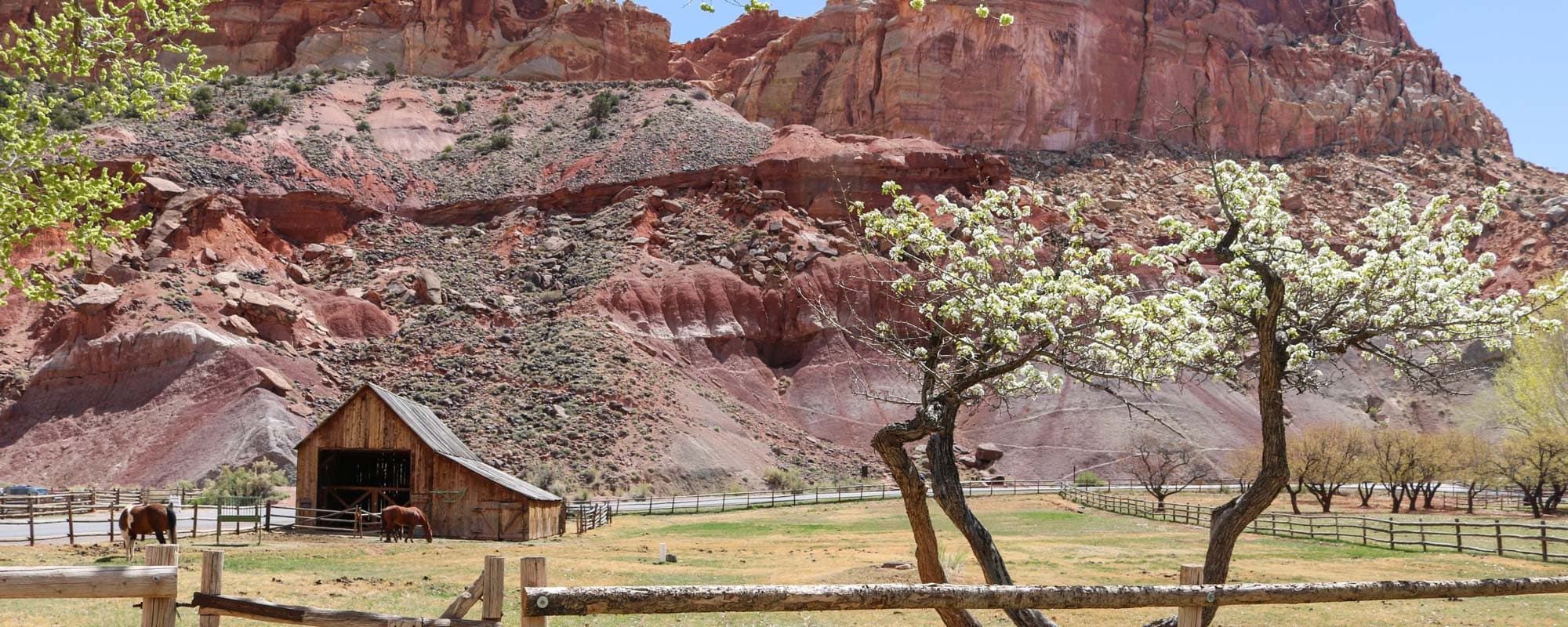
This Capitol Reef National Park information page contains affiliate links. You can read more about our Terms of Use / Disclosure here.
Highlights of Capitol Reef National Park
Although this is a vast national park, many of the main attractions are scattered around Fruita, a historic Mormon village in the heart of the park. Route 24 passes right by this historic area, making it exceptionally easy to visit Capitol Reef.
- Fruita
- Native American petroglyphs
- Scenic Drive
- Hickman Bridge
- Chimney Rock
- Grand Wash Trail
- Cohab Canyon Trail
- Cathedral Valley
- Capitol Gorge
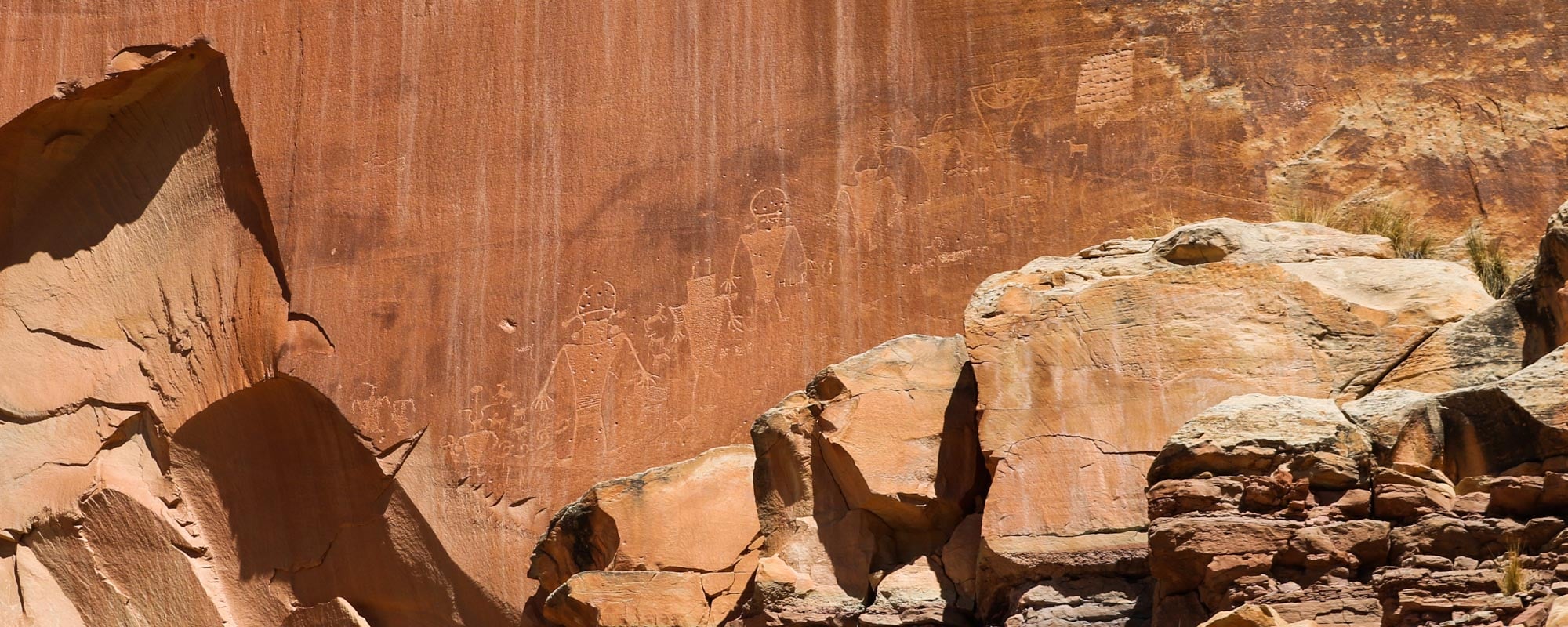
Accommodation Near Capitol Reef National Park
The fact that most people just drive through the park on Route 24, maybe quickly stopping in Fruita, has one big benefit. It’s much less crowded than the other parks in Utah.
Take your time and spend at least two days and one night in or around Capitol Reef National Park. It deserves it.
There’s a nice developed campground in Fruita, but the park has no lodging options. If you’d like to spend the night at a lodge, hotel or motel, I suggest staying in one of the nearby towns.
Booking.com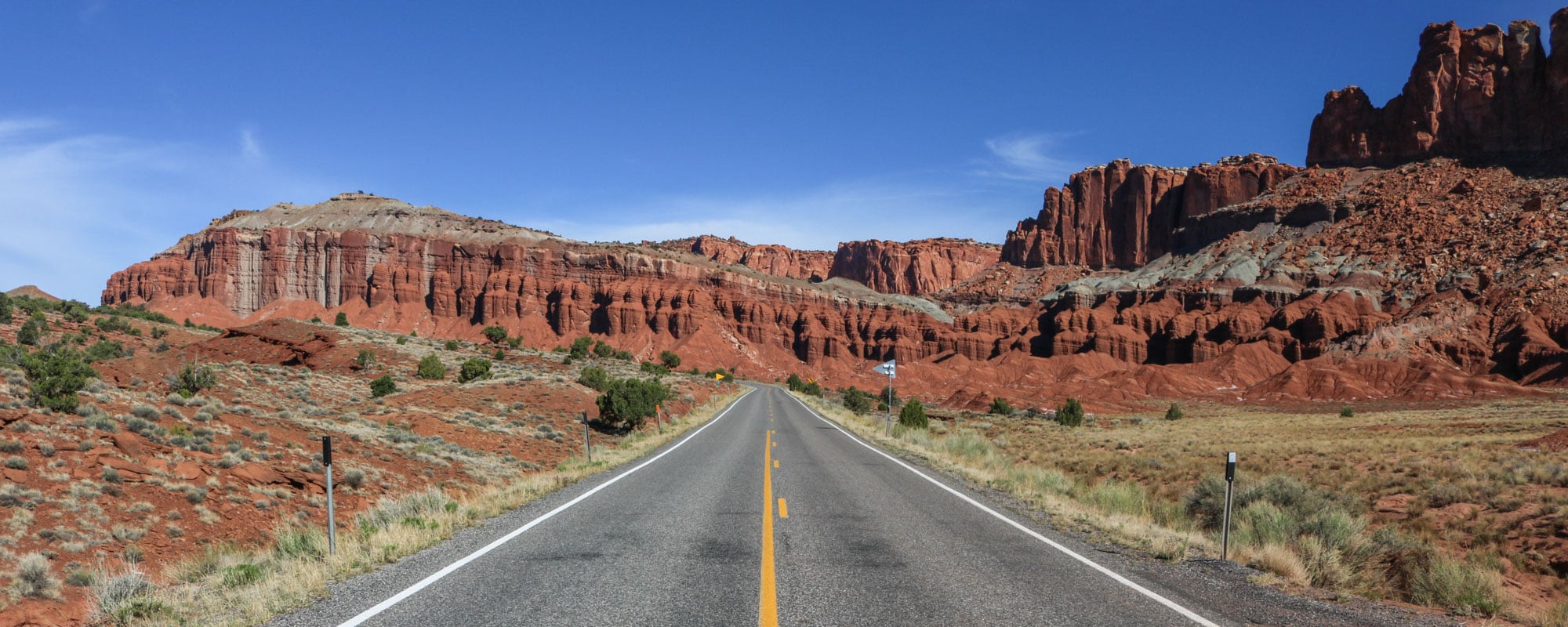
Useful Info
Location: South-central Utah, United States
Nearest Town: Torrey
Area: 378 square miles (241,904 acres)
Annual Visitors (2022): 1,227,608
Features: Steep cliffs, white sandstone domes, slot canyons, buttes, monoliths and other rock formations, petroglyphs
Main Attractions: Fruita, Scenic Drive, Cohab Canyon, Gifford Homestead, Hickman Bridge, Capitol Gorge Road, Cathedral Valley, Grand Wash, Chimney Rock
Main Activities: Hiking, backpacking, stargazing, (4-wheel) driving, camping, rock climbing, canyoneering
Suggested Stay: 2 days
Campground(s):
- Fruita Campground (71 sites)
More Information: National Park Service
Nearby National Parks:
- Arches National Park, Utah
- Bryce Canyon National Park, Utah
- Canyonlands National Park, Utah
- Zion National Park, Utah
- Grand Canyon National Park, Arizona
